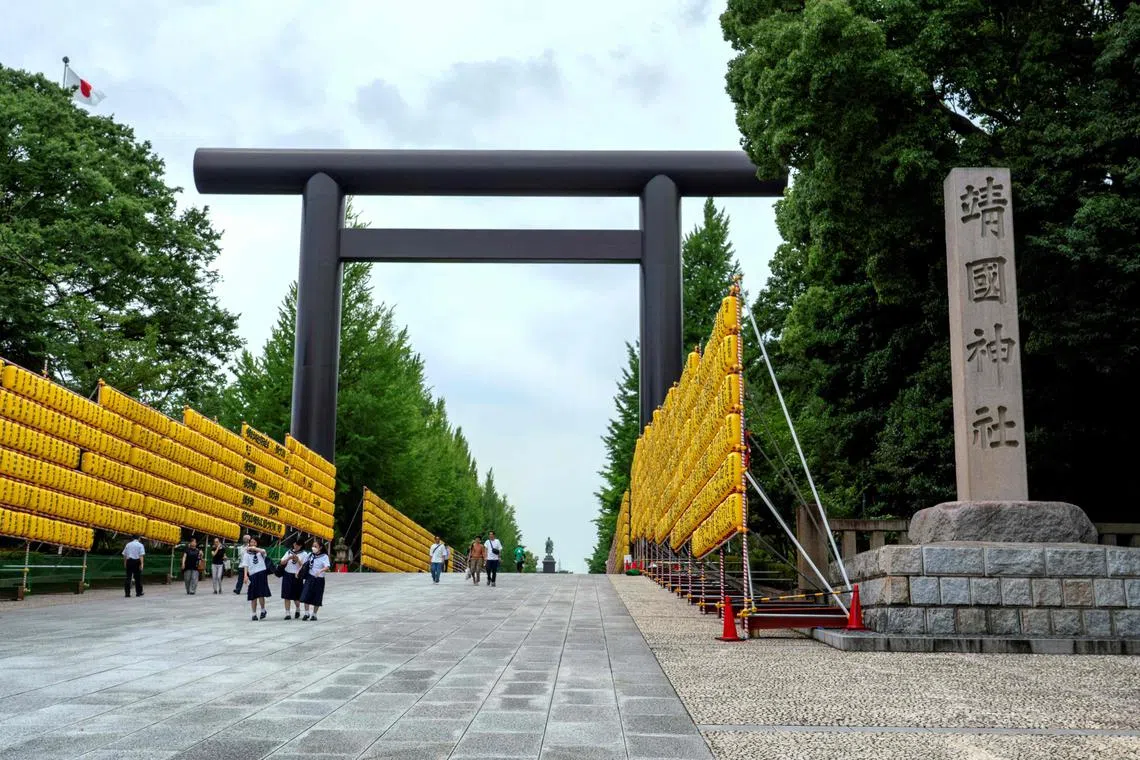Chinese man arrested, two others sought for vandalising Japan’s Yasukuni war shrine
Sign up now: Get insights on Asia's fast-moving developments

A video posted on Chinese social media showed a man appearing to urinate on the stone pillar before spray-painting it.
PHOTO: AFP
TOKYO - A Chinese man was arrested, and two others placed on a wanted list for allegedly defacing a Japanese war shrine that has long angered other Asian nations, Tokyo police said on July 10.
The Yasukuni shrine in Tokyo honours 2.5 million mostly Japanese killed in wars since the late 19th century, including convicted war criminals.
Jiang Zhuojun, 29, who lives north of Tokyo, was arrested “on suspicion of vandalism and disrespect for a place of worship”, a Tokyo metropolitan police spokesman told AFP.
Police also issued arrest warrants for two other Chinese men, Dong Guangming, 36, and Xu Laiyu, 25, placing them on wanted lists, but the spokesman said the two seem to have left the country.
Jiang, together with Dong, allegedly spray-painted the word “toilet” in red on a pillar of the shrine on May 31 while Xu filmed them, the spokesman said.
A video posted on Chinese social media showed a man appearing to urinate on the stone pillar before spray-painting it, local media reported.
The police spokesman confirmed officers had seen the video.
Dong earlier told Japanese broadcaster TBS that he admits to the vandalism, but would not report to police because the conduct was a protest against Japan’s release of treated wastewater
The UN atomic watchdog says the discharge that began in August 2023 is harmless, but China, later joined by Russia, banned all Japanese seafood imports
Yasukuni also includes a museum that portrays Japan largely as a victim of US aggression in World War II and makes scant reference to the extreme brutality of invading Imperial troops when they stormed through Asia.
Government ministers still regularly pay homage at Yasukuni, infuriating China, South Korea and others, although no prime minister has visited since Mr Shinzo Abe in 2013. AFP


